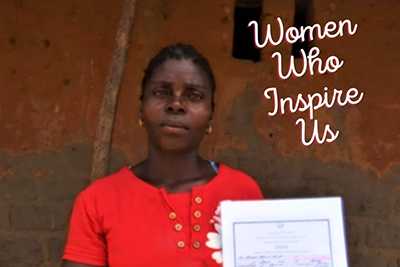NCBA CLUSA’s PROMAC II project in Mozambique, funded by the Royal Norwegian Embassy in Maputo, has more than 5,600 farmers enrolled—65 percent of whom are women. This activity supports food security and livelihoods by promoting climate-smart agriculture. It also promotes functional literacy and invests in building up the skills of all its program participants. Below, one participant reflects on how achieving literacy has transformed her life.

When the PROMAC II project entered my community, I did not know how to read, count or write. After the establishment of the Adult Literacy Center, I joined the program and started to study. I went from the 1st to the 2nd and from the 2nd to the 3rd level.
At the time, my challenge was to learn how to count to make my business easier and to read and write to make my life easier.
In addition to the school, the PROMAC II project taught me through its nutrition component how to make different dishes, such as porridge enriched with moringa, cabbage, fresh fish, badjias and soy milk, dried fish mixed with coconut or peanuts [and] cake, among others. I also learned that food before being consumed must be sanitized in order to be healthy.
From now on, I will continue to learn from NCBA CLUSA and I have already started teaching my neighbors and will continue to provide this support, because those who know something must teach the person who does not yet know. I intend to attend the 7th class of formal education, because the 3rd level of Adult Education completed is equivalent to the 6th class of normal education and if there are possibilities, I will continue my education.
In conclusion, I encourage NCBA CLUSA to continue to give these literacy lessons to communities because they need them.


